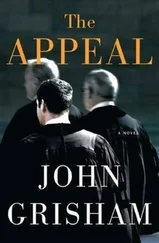Justin spoke first. “The fact that she hired the most expensive lawyer around here before she knew what was coming raises suspicions. Would she hire him if she wasn’t guilty of something? And how can she afford him on a judge’s salary? Narco-traffickers and other big-time crooks have the cash for a guy like Killebrew, but not a circuit court judge.”
“I guess she’s got the cash,” Lacy said.
Michael said, “As cool as she was, I saw fear. And not the fear of a soiled reputation. That’s the least of her worries. You agree, Lacy? Could you read her?”
“I didn’t get the impression she’s afraid. She’s too cold-blooded for that.”
Justin said, “Look, we know what she’s going to do. She’ll file a thick response in which she claims she purchased the condos years ago as investments. It’s not against the law to do so with offshore companies. It may look suspicious, but it’s not illegal or even unethical.”
Lacy said, “Okay, but how can she prove she paid for them?”
Michael ventured a guess. “She’ll find some records. She has Vonn Dubose somewhere in the dark cooking the books, and now she has Edgar Killebrew blowing smoke. This will not be easy.”
“We’ve known that from the beginning,” Lacy said.
“We need more from Myers,” Michael said. “We need the smoking gun.”
“Yes, we do, and Myers needs to lay as low as possible,” Justin added. “You saw how eager they are to find him.”
“They’re not going to find Myers,” Lacy said with authority, as if she knew more than her colleagues.
They had driven two hours for a fifteen-minute meeting, but that was the nature of their work. If there was time, Lacy wanted to at least see her wrecked car and check for forgotten odds and ends in its console and trunk. Michael had tried to persuade her otherwise. Whatever she left behind-old CDs, an umbrella, a few coins-would not be worth the horror of seeing the evidence of Hugo’s fatal injuries.
But, since they were in the neighborhood and had a few minutes, Michael wanted to say hello to Constable Gritt and introduce him to Lacy. Gritt had been on the scene and had helped with her rescue, and Lacy wanted to at least say thanks. It was almost 6:00 p.m. when they arrived at the police station near the casino. A cop was loitering around the front desk, and when Michael asked for Constable Gritt he was informed that he no longer worked there. There was a new constable and he’d gone home for the day.
“What happened to Gritt?” Michael asked, immediately suspicious.
The cop shrugged as if he had no idea. “You can ask the Chief but I doubt if you’ll get an answer.”
They drove two blocks to the salvage yard, and through a locked chain-link gate looked at a dozen old wrecks. The sad collection did not include Lacy’s Prius or the Dodge Ram that collided with it. They were gone.
“Oh, boy,” Michael mumbled. “Gritt assured me the vehicles would be secured. I told him there might be an investigation. I thought we were on the same page.”
“How long was he the constable?” Lacy asked.
“I think he said four years.”
“I guess we need to talk to him.”
“We’re going to be very careful, right, Lacy?”
The new constable was Billy Cappel, the Chief’s son and a council member. When the Chief announced Billy’s appointment, he explained to the police force that it was only temporary. Billy would serve until a proper search could be completed and the right man hired for the job. Since the new guy would no doubt come from the tribe, a proper search wouldn’t take long. Indeed, both the Chief and Billy knew that the interim position would soon evolve into a more permanent one. Billy earned $50,000 a year as a council member, in addition to his monthly dividends. As constable, his new salary was three times that, plus, thanks to a new rule, he could play head cop and stay on the council. It was a good deal, especially for the Cappel clan.
Billy’s law enforcement résumé was rather thin, but then he really didn’t need one. He had worked for a short time in casino security, before being elected, and he had volunteered for the rescue squad before it had been upgraded with full-time personnel.
During the second day of his new job, the police in Foley called with some interest in arresting Berl Munger, the man in the video who helped steal the Dodge Ram. Since the Foley police could not cross the state line to make the arrest, and since the Tappacola police had no jurisdiction off their reservation, the situation was a bit complicated. Billy promised to contact the police in DeFuniak Springs and enlist their help. He did no such thing; rather, he called his father, who passed along the word. Berl Munger soon knew there was an Alabama warrant for his arrest.
Billy couldn’t find the video the Foley police were talking about. He searched the police offices, all its files and computers, and found nothing. He suspected that Lyman Gritt had somehow hidden the video or taken it with him. He called his father again and said they might have a problem. He called Foley and asked for the video, but the police there were already skeptical and asking themselves “what the hell those Indians were doing over there.” They said they would send the video but were in no hurry to do so.
Berl Munger vanished. Billy and the Chief paid a visit to the home of Lyman Gritt. In a tense meeting, Gritt swore he knew nothing about a video. He had no idea what the cops in Foley were talking about. The Chief offered the usual threats, but Gritt was not easily intimidated. He finally asked them to leave his property. As constable, he had found the Chief meddlesome and dishonest. Now that he was unemployed, he despised the man, along with the rest of his family.
The video was hidden in Gritt’s attic, along with a copy of the one from Frog Freeman’s store. Gritt considered himself an honest cop who’d been fired by politicians who had been compromised. If the day of reckoning ever arrived, he might need some leverage.
Honest, and also quite capable. Two days after the accident, as the questions were piling up and the answers were proving elusive, Gritt had driven, alone, to the scene of the accident. He was stumped by three obvious puzzles. The first: Why would a car thief steal a vehicle worth at least $30,000 and drive it three hours to a remote spot on an Indian reservation? The county road where it came to rest was in the middle of their tribal land and, literally, went nowhere. It began on the back side of the casino property, snaked its way deeper into the reservation, and was used by only a handful of Tappacola who lived in the boondocks. With bloated budgets, the tribe kept it paved and well maintained, but the same was now true for almost every pig trail and field road on the land. Judging by his actions on the video, the thief had experience, and veterans like him usually sold their stolen wheels to chop shops within hours. They did not roam around strange places at midnight sipping Jack Daniel’s and driving recklessly. To Gritt’s knowledge, there were no fencing operations in Brunswick County. He found it impossible to believe that the driver, drinking or even drunk, could survive a head-on collision, even with a small Prius, absorb the blow from the air bag, and simply walk away. And where would he go? The reservation was half swamp and uninhabitable. The higher land was covered in thick woods. The only decent land had been taken by the casino. At midnight, an intruder wandering around the depths of the reservation would get hopelessly lost in five minutes. If the guy with the busted nose in Frog’s video was indeed the driver of the stolen truck, then he had an accomplice, one driving another truck with fake Florida plates.
Читать дальше












